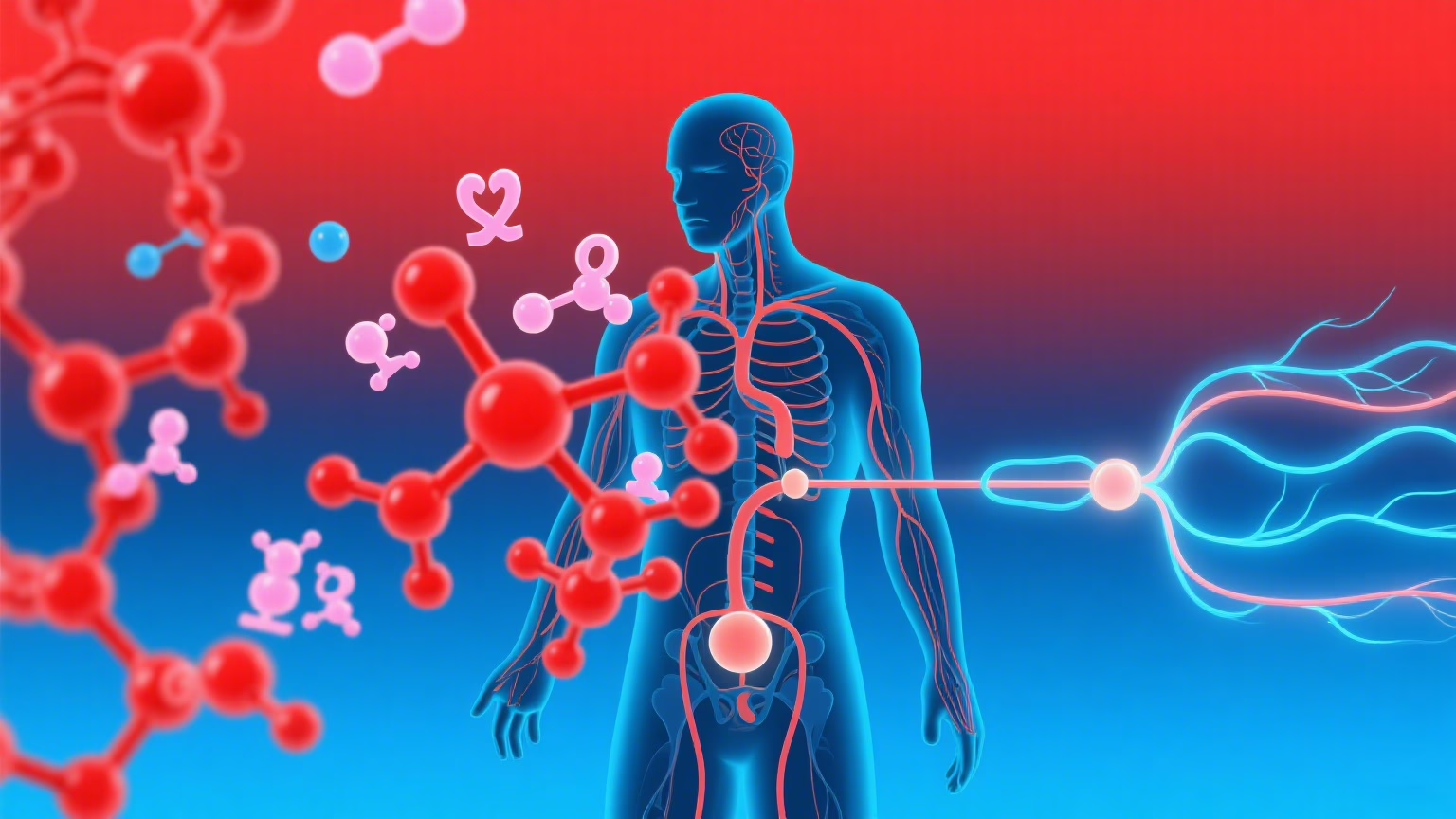Introduction
In today’s fast-paced world, stress has become an unwelcome companion in many of our lives. From demanding careers to financial pressures, family responsibilities to global uncertainties, chronic stress affects nearly every aspect of our well-being—including one of our most intimate and important human experiences: sexual desire and intimacy.
The relationship between stress and libido is more complex than many people realize. It’s not simply a matter of being “too tired” for sex; stress creates a cascade of physiological and psychological changes that can significantly dampen sexual desire and satisfaction. Understanding this connection is the first step toward breaking the cycle and reclaiming a fulfilling intimate life.

Whether you’re experiencing a temporary dip in sexual desire due to recent stressors or dealing with chronic intimacy challenges, this comprehensive guide will help you understand the science behind stress-related libido issues and provide practical, evidence-based strategies to restore balance and reignite passion in your relationship.
The Science Behind Stress and Sexual Desire
The Cortisol Connection
When we experience stress, our bodies release cortisol, often called the “stress hormone.” While cortisol serves important functions in acute stress situations, chronic elevation can wreak havoc on our sexual health. High cortisol levels directly suppress the production of sex hormones, including testosterone and estrogen, which are crucial for maintaining healthy libido in both men and women.
Research published in the Journal of Sexual Medicine shows that individuals with chronically elevated cortisol levels experience significantly reduced sexual desire, arousal difficulties, and decreased satisfaction with their intimate relationships. This creates a biological barrier to sexual connection that goes far beyond simple fatigue or distraction.

The Neurobiology of Stress and Arousal
The brain regions responsible for sexual arousal and stress response are intimately connected, often working in opposition to each other. The amygdala, our brain’s alarm system, becomes hyperactive during chronic stress, while the prefrontal cortex—responsible for sexual fantasy and arousal—becomes suppressed.
This neurobiological competition means that when stress pathways are activated, sexual response pathways are essentially shut down. It’s not a conscious choice; it’s an automatic physiological response that prioritizes survival over reproduction, a mechanism that served our ancestors well but can be problematic in our modern context of chronic, low-level stress.
Hormonal Disruption Beyond Cortisol
Chronic stress affects multiple hormone systems crucial for sexual health:
Testosterone: Both men and women need adequate testosterone for healthy libido. Chronic stress can reduce testosterone production by up to 50% in some individuals.
Estrogen: Stress can disrupt estrogen balance, affecting vaginal lubrication, sensitivity, and overall sexual comfort in women.
Oxytocin: Known as the “bonding hormone,” oxytocin levels decrease under chronic stress, reducing feelings of connection and intimacy with partners.
Growth Hormone: Stress interferes with growth hormone production, which affects energy levels and overall vitality essential for sexual health.
How Different Types of Stress Affect Libido
Acute vs. Chronic Stress
Acute Stress: Short-term stress can actually enhance sexual desire in some individuals, as the body’s arousal systems can overlap. The adrenaline rush might temporarily increase interest in physical intimacy.
Chronic Stress: Prolonged stress exposure fundamentally alters our physiological baseline, creating persistent libido suppression that doesn’t resolve without intervention.

Work-Related Stress and Sexual Health
Career pressures represent one of the most common sources of libido-suppressing stress in modern relationships. Long hours, job insecurity, difficult colleagues, and work-life balance challenges all contribute to elevated cortisol levels that persist well beyond office hours.
Studies show that individuals working more than 50 hours per week report 40% lower sexual satisfaction and frequency compared to those with more balanced schedules. The mental preoccupation with work tasks also interferes with the present-moment awareness necessary for sexual arousal and pleasure.
Relationship Stress and Intimacy
Ironically, relationship stress can both cause and result from decreased libido, creating a vicious cycle. Communication problems, financial disagreements, parenting stress, and unresolved conflicts all contribute to an environment where sexual intimacy feels impossible or undesirable.
When couples are stressed about their relationship, the emotional safety required for vulnerable sexual connection disappears. Partners may avoid intimacy to prevent additional conflict, further deteriorating their bond and increasing overall relationship stress.
Financial and Life Stress
Economic pressures create particularly persistent stress that can devastate sexual health. Worries about mortgage payments, debt, job security, or providing for family needs activate our most primitive survival instincts, making sexual desire seem like an unnecessary luxury.
Major life transitions—moving, illness, loss of loved ones, or significant changes—also create stress that temporarily or permanently alters sexual desire patterns.
Physical Manifestations of Stress-Related Libido Loss
Sleep Disruption and Sexual Health
Chronic stress severely impacts sleep quality, creating a secondary pathway to libido suppression. Poor sleep reduces testosterone production, increases cortisol, and leaves individuals feeling too exhausted for sexual intimacy.
The relationship between sleep and sexual health is bidirectional: stress disrupts sleep, which further reduces sexual desire, which can create relationship stress, which further disrupts sleep.

Energy Depletion and Physical Intimacy
Stress is metabolically expensive. Maintaining high alert states drains our energy reserves, leaving little physical or emotional capacity for sexual activity. This isn’t laziness; it’s biological conservation of resources during perceived threats.
Many stressed individuals report feeling “touched out” or overwhelmed by physical contact, as their nervous systems interpret even loving touch as additional stimulation they cannot handle.
Digestive and Immune System Impact
Chronic stress affects digestion and immune function, creating physical discomfort that interferes with sexual pleasure. Stress-related digestive issues, frequent illness, and general physical malaise all contribute to decreased interest in sexual activity.
Psychological Factors in Stress-Related Libido Issues
Anxiety and Sexual Performance
Stress often manifests as anxiety, which creates performance pressure around sexual activity. Anxiety about sexual performance becomes a self-fulfilling prophecy, as worry prevents the relaxation necessary for arousal and pleasure.
This performance anxiety can persist even after original stressors resolve, creating learned patterns of sexual avoidance that require specific intervention to overcome.
Depression and Sexual Desire
Chronic stress frequently leads to depression, which profoundly affects libido through multiple pathways. Depression alters brain chemistry, reduces pleasure-seeking behavior, and creates emotional numbness that extends to sexual experiences.
The medications commonly prescribed for depression can also suppress sexual desire as a side effect, creating additional challenges for stressed individuals seeking treatment.

Body Image and Self-Esteem
Stress often negatively impacts body image and self-esteem. When we’re overwhelmed, self-care routines suffer, and we may feel less attractive or desirable. These feelings create additional barriers to sexual intimacy, as comfort with one’s body is essential for sexual pleasure.
Stress-related weight changes, skin issues, or neglected grooming can compound these body image concerns, creating a cycle where stress reduces self-care, which reduces sexual confidence, which increases relationship stress.
Breaking the Stress-Libido Cycle: Evidence-Based Strategies
Stress Management Fundamentals
Mindfulness and Meditation: Regular mindfulness practice directly counteracts stress physiology by activating the parasympathetic nervous system. Studies show that just 10-15 minutes of daily meditation can significantly reduce cortisol levels and improve sexual satisfaction within 4-6 weeks.
Deep Breathing Exercises: Simple breathing techniques can interrupt stress responses in real-time. The 4-7-8 breathing pattern (inhale for 4, hold for 7, exhale for 8) activates relaxation responses that support sexual health.
Progressive Muscle Relaxation: Systematic tension and release of muscle groups helps reset the nervous system and increases body awareness, both crucial for sexual responsiveness.

Physical Interventions for Stress and Libido
Regular Exercise: Moderate exercise reduces cortisol, increases endorphins, and improves body image—all crucial for healthy libido. However, excessive exercise can increase stress hormones, so balance is key.
Yoga for Sexual Health: Specific yoga practices can simultaneously reduce stress and enhance sexual function. Hip-opening poses, breathwork, and meditation components of yoga practice specifically support sexual health.
Massage and Touch Therapy: Non-sexual touch helps reduce cortisol and increase oxytocin. Regular massage, whether professional or between partners, can help restore comfort with physical intimacy.
Nutrition and Lifestyle Interventions
Stress-Fighting Foods: Certain nutrients specifically support healthy stress response and sexual function:
- Omega-3 fatty acids reduce inflammation and support hormone production
- Magnesium helps regulate cortisol and supports muscle relaxation
- Zinc is essential for testosterone production
- Antioxidants protect against stress-related cellular damage
Limiting Stress-Inducing Substances: Caffeine, alcohol, and processed foods can exacerbate stress responses and interfere with sexual function. Moderate consumption and timing are important considerations.
Sleep Hygiene: Establishing consistent sleep routines, limiting screen time before bed, and creating a restful environment are crucial for breaking stress-libido cycles.
Relationship-Focused Solutions
Communication Strategies
Open, honest communication about stress and its impact on intimacy is essential for couples dealing with stress-related libido issues. Partners need to understand that decreased sexual desire isn’t personal rejection but a physiological response to stress.
Scheduling Intimacy: While it may seem unromantic, scheduling intimate time together removes performance pressure and ensures connection doesn’t get lost in busy, stressful schedules.
Non-Sexual Intimacy: Building emotional and physical connection through non-sexual touch, shared activities, and quality time together creates a foundation for sexual intimacy to return naturally.

Redefining Intimacy During Stressful Periods
When traditional sexual activity feels impossible, couples can maintain intimacy through alternative expressions of love and connection:
- Sensual massage without expectation of sexual activity
- Shared baths or showers
- Cuddling and non-sexual physical affection
- Emotional intimacy through deep conversation
- Shared stress-reduction activities like meditation or gentle exercise
Professional Support for Couples
Sometimes stress-related libido issues require professional intervention. Sex therapists, couples counselors, and medical professionals can provide specialized support for navigating these challenges.
When to Seek Help:
- Libido issues persist despite stress reduction efforts
- Relationship conflict increases due to intimacy challenges
- Individual or couple distress about sexual health
- Medical concerns about hormonal or physical factors
Medical Interventions and Professional Help
Hormonal Assessment and Treatment
For individuals with chronic stress-related libido issues, hormonal evaluation may be necessary. Blood tests can reveal cortisol patterns, sex hormone levels, and thyroid function—all crucial factors in sexual health.
Bioidentical Hormone Therapy: In some cases, temporary hormone support may help restore sexual function while stress management strategies take effect.
Thyroid Optimization: Stress often affects thyroid function, which significantly impacts libido. Proper thyroid treatment can restore sexual desire in many individuals.
Therapeutic Approaches
Cognitive Behavioral Therapy (CBT): CBT helps individuals identify and change thought patterns that contribute to both stress and sexual difficulties.
Mindfulness-Based Stress Reduction (MBSR): This evidence-based program specifically addresses stress physiology and has shown significant benefits for sexual health.
Sensate Focus Therapy: This specialized approach helps couples rebuild physical and sexual intimacy gradually, without performance pressure.

Medication Considerations
While medication should never be the first approach to stress-related libido issues, certain medications may be helpful in specific situations:
Adaptogens: Natural supplements like ashwagandha, rhodiola, and holy basil can help regulate stress response without significant side effects.
Short-term Anxiety Support: For individuals with severe anxiety interfering with intimacy, temporary anxiety medication may provide relief while other interventions take effect.
Addressing Medication Side Effects: Many common medications (antidepressants, blood pressure medications, antihistamines) can suppress libido. Working with healthcare providers to optimize medications is important.
Creating a Sustainable Recovery Plan
Setting Realistic Expectations
Recovery from stress-related libido issues takes time. Most individuals see initial improvements in 4-6 weeks with consistent stress management practices, but full restoration of sexual health may take 3-6 months or longer.
Setting small, achievable goals prevents additional performance pressure that can worsen the cycle. Focus on reducing stress and improving overall well-being rather than immediately restoring previous sexual patterns.
Building Support Systems
Recovery is easier with support. This might include:
- Professional therapy or counseling
- Support groups for stress management or sexual health
- Trusted friends or family members who understand the challenges
- Online communities focused on sexual wellness and stress reduction
Monitoring Progress
Keep track of stress levels, sleep quality, energy levels, and sexual interest to identify patterns and celebrate improvements. Many individuals find that small positive changes in one area create momentum for improvement in others.

Prevention Strategies: Maintaining Sexual Health During Stressful Times
Proactive Stress Management
The best approach to stress-related libido issues is prevention. Building robust stress management practices before major stressors hit creates resilience that protects sexual health:
- Regular stress-reduction practices even during calm periods
- Strong social support networks
- Healthy lifestyle habits that support stress resilience
- Early intervention when stress levels begin to rise
Relationship Maintenance
Maintaining relationship health during stressful periods requires intentional effort:
- Regular check-ins about stress levels and relationship satisfaction
- Protecting time for connection even during busy periods
- Addressing conflicts promptly before they compound stress
- Celebrating small victories and positive moments together
Lifestyle Design for Sexual Health
Creating a lifestyle that naturally supports both stress management and sexual health:
- Work-life boundaries that protect personal time
- Regular exercise and movement practices
- Nutritious eating patterns that support hormone health
- Social connections that provide support and joy
- Hobbies and activities that provide stress relief and pleasure
Long-Term Strategies for Stress-Libido Balance
Building Resilience
True recovery involves building resilience to future stressors rather than just addressing current issues. This includes:
Emotional Resilience: Developing coping skills, emotional regulation, and stress tolerance through therapy, meditation, or personal development work.
Physical Resilience: Maintaining fitness, nutrition, and health practices that support the body’s ability to handle stress without compromising sexual function.
Relationship Resilience: Building communication skills, conflict resolution abilities, and emotional intimacy that can weather stressful periods.
Creating Sustainable Practices
The most effective stress management and sexual health practices are those that can be maintained long-term:
- Simple daily routines rather than complex programs
- Practices that provide multiple benefits (exercise, meditation, quality time with partner)
- Flexibility to adapt practices to changing life circumstances
- Support systems that encourage consistency
Conclusion
The relationship between stress and libido is complex but not insurmountable. Understanding that decreased sexual desire during stressful periods is a normal physiological response—not a personal failing or relationship problem—is the first step toward healing.
Recovery requires patience, commitment, and often professional support, but it is absolutely possible. By addressing both the physiological and psychological aspects of stress, implementing evidence-based stress management strategies, and maintaining open communication with partners, individuals and couples can break the cycle of stress-related libido issues.
Remember that sexual health is an important component of overall well-being. Investing time and energy into managing stress and maintaining intimacy isn’t selfish—it’s essential for a fulfilling life and healthy relationships.
The journey back to sexual wellness may not be linear, but with consistent effort and the right support, it’s possible to not only recover from stress-related libido issues but to develop even greater intimacy and sexual satisfaction than before. Your sexual health deserves attention, care, and professional support when needed.
Take the first step today, whether that’s implementing a simple stress-reduction practice, having an honest conversation with your partner, or reaching out to a healthcare professional. Your future self—and your relationship—will thank you.
